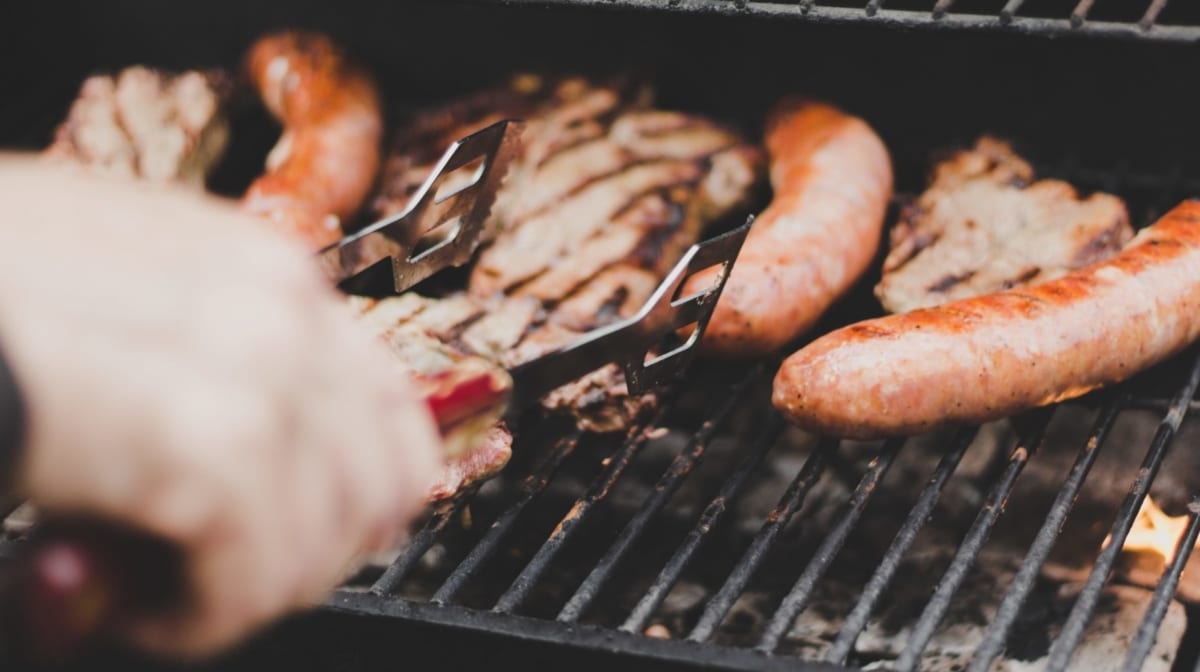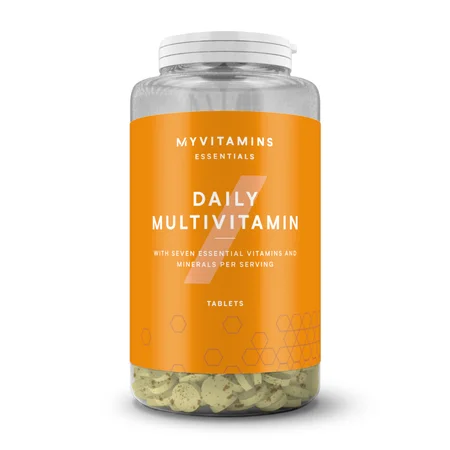The Carnivore Diet | Food List, Benefits And Side Effects

The Carnivore diet is the newest fad on the block, and we don’t mean that lightly. It's nothing new, it's been around for a while.1 It involves eating only animal products, no plants, and mostly meat. People claim that following the carnivore diet will help you lose weight, protect against disease, reduce inflammation and increase testosterone levels. However, no research has been analysed on the Carnivore diet. But we’re getting ahead of ourselves...here’s our full breakdown of the carnivore diet.
Jump to:
- What is the carnivore diet?
- Carnivore diet disadvantages
- Carnivore diet foods
- Are there any benefits of the carnivore diet?
- The verdict

What is the carnivore diet?
Following the diet involves eliminating all plant foods from your diet and exclusively eating meat, fish, eggs, and small amounts of low lactose dairy products. Foods to eat include beef, chicken, pork, lamb, turkey, organ meats, salmon, sardines, white fish, and small amounts of heavy cream and hard cheese. Butter, lard, and bone marrow are also allowed.
The carnivore diet encourages drinking water and bone broth but discourages drinking tea, coffee, and other drinks made from plants. It provides no specific guidelines regarding calorie intake, serving sizes, or how many meals or snacks to eat per day. Most proponents of the diet suggest eating as often as you desire.
No carbohydrates are allowed. That means no more fruit, vegetables, grains, starches, nuts and legumes because the diet dictates you only eat meat, animal fat and eggs. Seems rather restrictive, doesn’t it?
Certain elements of the Carnivore diet may lead to weight loss. There have been studies to show that a low-carb and high-protein diet can promote weight loss – however this is no more than achieving a calorie deficit. This also doesn’t involve cutting out major food groups.2,3,4 This is also likely due to the fact that protein can increase your metabolic rate as well as promote satiety.5,6,7

Carnivore diet disadvantages
Cuts out fibre
Eliminating plant-based foods means eliminating fibre. Fibre has many benefits including but not limited to:
- Removing excess cholesterols and bile acids from your body
- Regulating blood glucose and blood lipid levels
- Supporting immune system health
- Feeding the essential bacteria in your gut microbiome
Bye, bye carbs
The carnivore diet cuts out carbs drastically or entirely. When you eliminate carbohydrates, you ultimately influence your brain's ability to perform cognitive functions...and we need that to be working at its best.

Why Carbs Aren't The Enemy | Different Types of Carbohydrates & Benefits
It's time to make friends with carbs...
Our brains function off glucose – of course it's important!
Your body depends on carbs for energy. Your brain is mainly fuelled by glucose and carbs give your muscles energy. To diet culture’s disbelief- carbohydrates are not bad. Refined carbs in fast food, sugary beverages, and chocolate bars are nothing like the carbs in whole grains, beans, fruit and veg. They’re broken down and digested completely differently. Plus – imagine never having a chocolate in your life again? No thank you.
No carbs = no veg
Following a zero-carbohydrate diet means eliminating all types of vegetables. Vegetables provide different nutrients for the body all of which serve different functions. Eliminating vegetables means eliminating micro-nutrients, fibre and a whole lot of goodness in your body. This is definitely not sustainable, nor is it healthy.
Pricey
The Carnivore diet is also very heavy on the budget. Leaders in the Carnivore diet recommend that you only choose the highest quality of meat, such as grass-fed beef, and wild line-caught salmon – this isn't sustainable on the bank balance for most of us.
Increases saturated fats
The carnivore diet is high in fat, cholesterol, and sodium. Given that the diet consists solely of animal foods, it can be high in saturated fat and cholesterol. Saturated fat may raise your LDL (bad) cholesterol, which may increase your risk of heart disease.10 Eating a lot of these foods such as processed meats can lead to excessive sodium intake, which has been linked to an increased risk of high blood pressure, kidney disease, and other negative health outcomes.11

Carnivore diet foods
- Red meat
- White meat
- Offal (i.e., organ meat)
- Animal fat (i.e., lard)
- Poultry
- Fish
- Seafood
- Eggs
- Dairy (optional)
While meat is nutritious and provides micronutrients and its own set of benefits, it should not be the only part of your diet. Following a restrictive diet like the Carnivore Diet may lead to deficiencies in some nutrients and the overconsumption of others.8 Diets that are rich in plant-based foods have been associated with a lower risk of certain chronic conditions too.9
Are there any benefits of the carnivore diet?
Since the carnivore diet excludes many refined carbs such as biscuits, cakes and pastries, it’s likely that you’ll be consuming fewer energy dense and nutrient poor foods by default. These foods are low in beneficial nutrients and often high in calories. Thus, they should be limited in a healthy, balanced diet. This is by no means to say biscuits, cake and pastries every now and then is a bad thing, they have plenty of mental benefits - moderation is key.
Meat can certainly play a role in a healthy eating plan, however focusing on just meat is certainly not beneficial as there is no fibre. You can lose weight on the carnivore diet because it is an extreme diet that deprives you of adequate nutrition. Extreme weight loss is never good for the body as it’s likely to increase more weight in the future, as such restrictive diets are seldom sustainable in nature.
The verdict
The carnivore diet is a fad based on no scientific evidence and there have been no studies to prove any benefit. By cutting out whole food groups from your diet, you will deprive your body of essential nutrients. Extreme dieting is damaging for the body and your mind, putting you at increased risk of disordered eating and long-term health problems. There’s also a good chance that you’ll put that weight right back on because you can’t be a carnivore forever and it is certainly not sustainable.
FIND MORE HERE:

The 8 Best Supplements For Muscle Gain
Is growing muscle on your agenda? Then you've probably considered supplements – read this first.

Myprotein's Best Whey Protein Flavours According To You
If you’ve ever found yourself in a protein-picking dilemma, a good place to start is what’s the most popular.

High Protein Shakes To Boost Your Daily Intake & How To Make Them
Your daily protein shake will never be boring again.

- Bang HO, Dyerberg J, Sinclair HM. The composition of the Eskimo food in north western Greenland. Am J Clin Nutr. 1980;33(12):2657-2661. https://www.ncbi.nlm.nih.gov/pubmed/7435433. Accessed 2015.
- Soenen S, Bonomi AG, Lemmens SG, Scholte J, Thijssen MA, van Berkum F, Westerterp-Plantenga MS. Relatively high-protein or ‘low-carb’ energy-restricted diets for body weight loss and body weight maintenance? Physiol Behav. 2012 Oct 10;107(3):374-80. doi: 10.1016/j.physbeh.2012.08.004. Epub 2012 Aug 19. PMID: 22935440.
- Larsen TM, Dalskov SM, van Baak M, Jebb SA, Papadaki A, Pfeiffer AF, Martinez JA, Handjieva-Darlenska T, Kunešová M, Pihlsgård M, Stender S, Holst C, Saris WH, Astrup A; Diet, Obesity, and Genes (Diogenes) Project. Diets with high or low protein content and glycemic index for weight-loss maintenance. N Engl J Med. 2010 Nov 25;363(22):2102-13. doi: 10.1056/NEJMoa1007137. PMID: 21105792; PMCID: PMC3359496.
- Bazzano LA, Hu T, Reynolds K, Yao L, Bunol C, Liu Y, Chen CS, Klag MJ, Whelton PK, He J. Effects of low-carbohydrate and low-fat diets: a randomized trial. Ann Intern Med. 2014 Sep 2;161(5):309-18. doi: 10.7326/M14-0180. PMID: 25178568; PMCID: PMC4428290.
- Paddon-Jones D, Westman E, Mattes RD, Wolfe RR, Astrup A, Westerterp-Plantenga M. Protein, weight management, and satiety. Am J Clin Nutr. 2008 May;87(5):1558S-1561S. doi: 10.1093/ajcn/87.5.1558S. PMID: 18469287.
- Westerterp-Plantenga MS, Lemmens SG, Westerterp KR. Dietary protein – its role in satiety, energetics, weight loss and health. Br J Nutr. 2012 Aug;108 Suppl 2:S105-12. doi: 10.1017/S0007114512002589. PMID: 23107521.
- Pesta, D. H., & Samuel, V. T. (2014). A high-protein diet for reducing body fat: mechanisms and possible caveats. Nutrition & metabolism, 11(1), 53. https://doi.org/10.1186/1743-7075-11-53
- Calton J. B. (2010). Prevalence of micronutrient deficiency in popular diet plans. Journal of the International Society of Sports Nutrition, 7, 24. https://doi.org/10.1186/1550-2783-7-24
- Boeing, H., Bechthold, A., Bub, A., Ellinger, S., Haller, D., Kroke, A., Leschik-Bonnet, E., Müller, M. J., Oberritter, H., Schulze, M., Stehle, P., & Watzl, B. (2012). Critical review: vegetables and fruit in the prevention of chronic diseases. European journal of nutrition, 51(6), 637–663. https://doi.org/10.1007/s00394-012-0380-y
- Siri-Tarino PW, Sun Q, Hu FB, Krauss RM. Saturated fat, carbohydrate, and cardiovascular disease. Am J Clin Nutr. 2010 Mar;91(3):502-9. doi: 10.3945/ajcn.2008.26285. Epub 2010 Jan 20. PMID: 20089734; PMCID: PMC2824150.
- Cappuccio F. P. (2013). Cardiovascular and other effects of salt consumption. Kidney international supplements, 3(4), 312–315. https://doi.org/10.1038/kisup.2013.65
- Chan DS, Lau R, Aune D, Vieira R, Greenwood DC, Kampman E, Norat T. Red and processed meat and colorectal cancer incidence: meta-analysis of prospective studies. PLoS One. 2011;6(6):e20456. doi: 10.1371/journal.pone.0020456. Epub 2011 Jun 6. PMID: 21674008; PMCID: PMC3108955.










